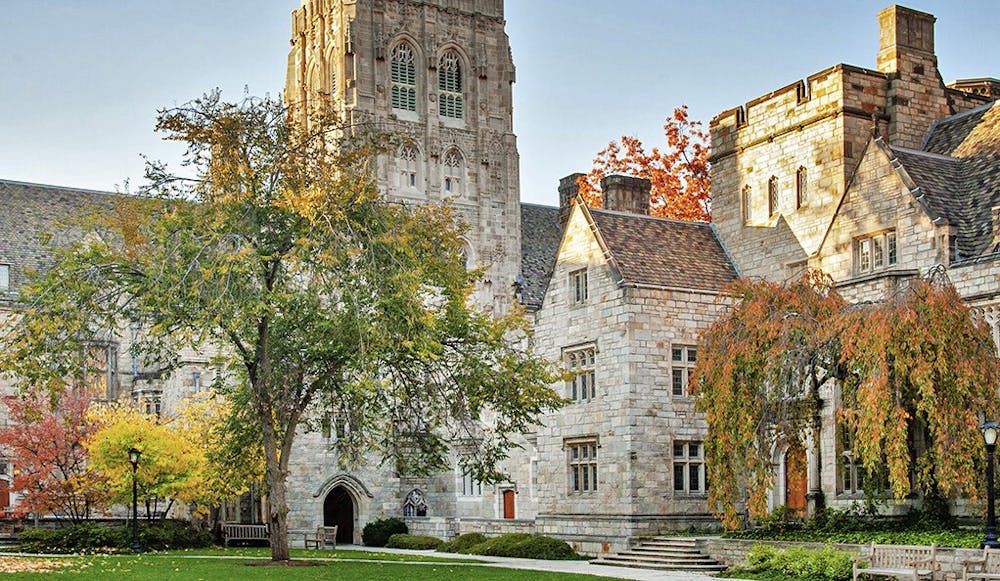Duke is rolling out new guidelines for on-campus social events involving alcohol, a part of QuadEx’s new initiative called Fun @ Duke. Here’s how the University’s new rules stack up against those of peer institutions.
Funding
The Fun @ Duke guidelines allow registered student organizations to access event funding from the Student Organization Finance Committee, the Cultural Engagement Fund and University departments. Quad councils and living and learning communities will receive a programming allocation. Individual students, however, cannot access any University alcohol funding for events.
Most similar to Duke’s new policy is Yale University’s guidelines, which allow university funding to be used for on or off-campus events serving alcohol.
Unlike Duke and Yale, University of North Carolina at Chapel Hill and North Carolina State University prohibit the use of federal, state or student organization funding to purchase alcohol. UNC specifies that groups hosting events may use discretionary funding, but not research or scholarship money from “institutional trust funds” for alcohol.
Similarly, Stanford University restricts the use of house dues or student group funding from being used to buy alcohol.
Event overseers
For every 25 attendees at an event with alcohol, there must be one social host at Duke. Social hosts must attend an annual workshop, and be “sober, active bystanders” for the duration of the event.
UNC only requires one event manager at events, and this person must be older than 21 and knowledgeable of UNC’s alcohol policy.
N.C. State requires a “responsible person” to be designated to “oversee compliance” of the alcohol policy.
Yale stipulates that on-campus events serving alcohol must arrange bartending service by an off-duty dining services staff member. If 50 or more people are expected to attend an event, security or emergency medical personnel must also be present.
Harvard University says that large campus events must include the presence of trained bartenders for age verification and alcohol provision.
Attendance restrictions
At Duke, those under 21 are not restricted from attending events involving alcohol, except during the first week of the fall semester.
Similarly, Stanford does not allow events with alcohol during the end of quarter period, reading week, admit weekend or new student orientation.
Meanwhile, UNC’s alcohol policy says “service of any alcoholic beverages is strongly discouraged" at events “likely to be attended” by underage guests. If alcohol is served at these events, the hosting organization must submit a plan for ensuring that underage people cannot obtain drinks. At UNC and N.C. State, events involving alcohol are invite-only, while Duke has no such restriction outside of the first week of the fall semester.
Harvard limits the attendance at parties in residence halls to invite-only, and for larger social events, alcohol is only permitted when attendance is limited to members of the Harvard community and their “escorted guests.” For campus-wide events, age verification for attendees is required.
Alcohol consumption outside approved events
At Duke, students over 21 years old are allowed to consume or possess alcohol on West Campus, while alcohol remains prohibited on East Campus.
Similarly, Yale prohibits kegs of beer on its Old Campus, which is similar to Duke’s East Campus in housing primarily first-year undergraduate students, and prohibits alcohol from being served at events open to first-years in these areas.
On the other hand, UNC only allows alcohol consumption outside of planned events in “designated areas” of campus. At N.C. State, alcohol possession is allowed within private areas of university housing outside of events. Alcohol is prohibited outdoors on campus, in most athletic facilities and in classrooms being used for instruction.
Harvard follows Massachusetts local laws prohibiting the public consumption of alcohol, so possession of alcohol is limited to pre-approved events.
At Stanford, the rules are looser: possession of alcohol is allowed except in dining halls, athletic facilities and classrooms.
Types and containers of alcohol
Duke allows event hosts to provide up to one keg per 50 guests at all events except those held in venues with liquor licenses. Duke also allows a “bring your own bottle” alcohol provision.
At UNC, only professional vendors or caterers are allowed to use common-source containers, including kegs. Self-service is not allowed. N.C. State also restricts service to professional vendors.
Yale only restricts kegs for first-years, and says that organized social functions can only serve beer, wine or mixed drinks with up to 15% alcohol by volume. Grain alcohol is prohibited.
Stanford also doesn’t specify the type of containers allowed, but says parties hosted by undergraduate student groups can only serve beer, wine, or pre-mixed drinks with less than 20% alcohol by volume. Shots of liquor are prohibited.
At Harvard, kegs are permitted at events with prior approval, and BYOB events are not permitted. Liquor is also not allowed, and all drinks served must not exceed 15% ABV.
Provision of refreshments
Like Duke, UNC, N.C. State and Yale require that events involving alcohol must also provide food and non-alcoholic beverages.
Harvard has a similar stipulation for private parties in residence halls, but not for campus-wide events.
Get The Chronicle straight to your inbox
Signup for our weekly newsletter. Cancel at any time.
Anisha Reddy is a Trinity junior and a senior editor of The Chronicle's 118th volume.

